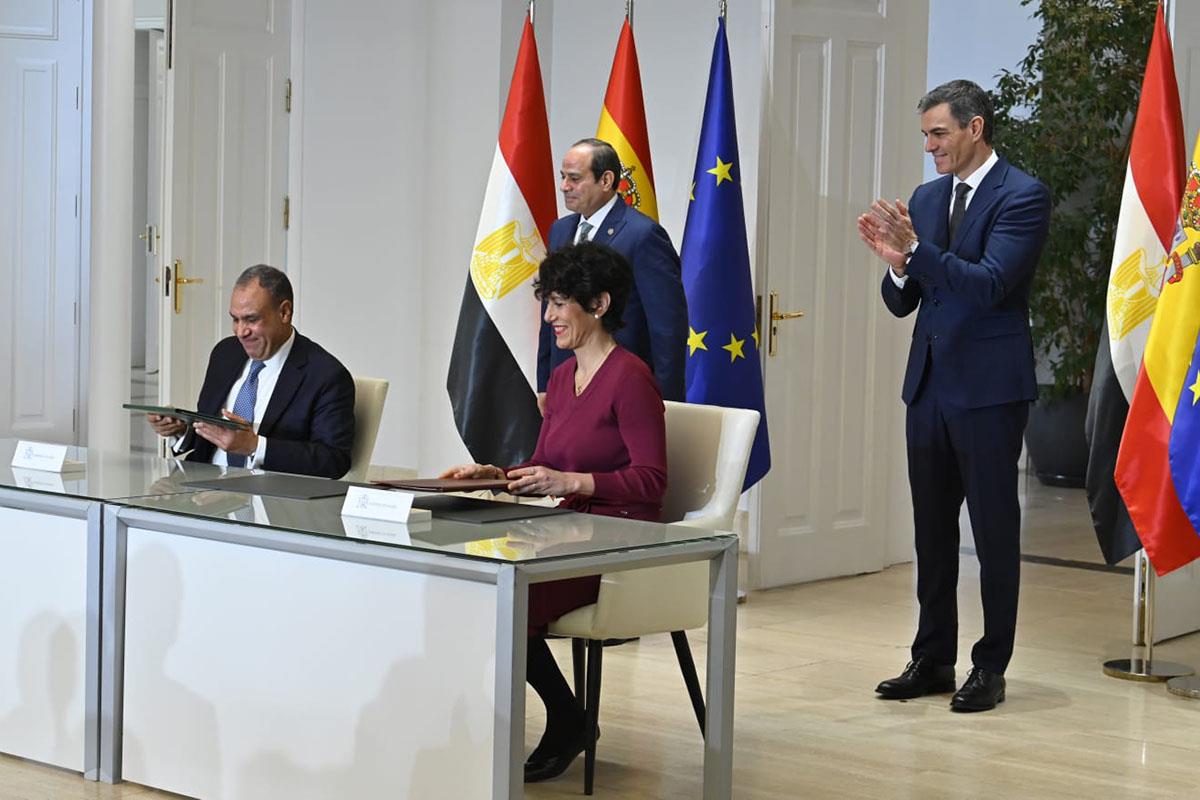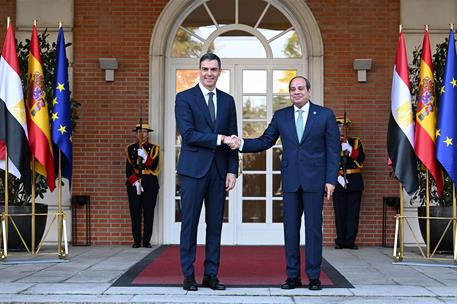The Government of Spain is promoting a pilot circular migration programme with Egypt to strengthen bilateral relations
News - 2025.2.19
 The Minister for Inclusion, Social Security and Migration, Elma Saiz, and Minister for Foreign Affairs, Immigration and Affairs of Egyptians Abroad of Egypt, Badr Ahmed Mohamed Abdelatty, during the signing of the memorandum
The Minister for Inclusion, Social Security and Migration, Elma Saiz, and Minister for Foreign Affairs, Immigration and Affairs of Egyptians Abroad of Egypt, Badr Ahmed Mohamed Abdelatty, during the signing of the memorandum
It will initially apply for a period of one year, but may be extended for a further year.
"This memorandum establishes a framework for cooperation so that our countries, which are united by so many ties, can strengthen their links through an issue of common interest: the selection of candidates at origin for circular migration programmes," explained Minister Elma Saiz. "This Memorandum of Understanding not only facilitates labour mobility, but also strengthens our ties of friendship and collaboration, promoting safe and secure migration with full respect for workers' rights".
The signing of this memorandum comes in the context of the meeting the President of the Government, Pedro Sánchez, has held with the President of Egypt, Abdel Fattah Al Sisi, in what is the Egyptian president's second official visit. The bilateral relationship between Spain and Egypt has recently been strengthened. A good indication of this is that the president has visited Egypt four times in recent years.
The main objective of the meeting between the mandatories is to elevate the relationship between Spain and Egypt to a Strategic Partnership, the highest level of bilateral relations that Spain can maintain with another country. In addition to the Memorandum signed with the Ministry of Inclusion, a Joint Declaration, a declaration on regional issues, and several Memoranda of Understanding on economic cooperation have also been adopted.
Memorandum of Understanding on Circular Migration
The purpose of the Memorandum of Understanding on Circular Migration signed is to establish a framework for cooperation to address issues of common interest and concern in the field of migration. It proposes the implementation of programmes to recruit workers in their countries of origin for fixed-term jobs. Once this work is completed in Spain, they can return to their communities.
"Circular migration programmes are a win-win for all parties involved. They are an extraordinary example of our migration policies: we procure the labour we need, we protect workers' rights, and we facilitate the return of these people to their countries of origin, with the benefits that this can also bring to the development of their communities", explained Minister Elma Saiz.
Thanks to the reform of the Regulation on Foreigners, the circular migration procedures under which programmes such as these are registered have been simplified. They can grant people a four-year permit to work for a maximum of nine months per year on a fixed-term contract. Prior to the reform, these projects had to be processed every year, and now they are processed once every four years, significantly reducing the administrative burdens for companies and for migrant workers.
Other collaborations
Spain has signed agreements on the regulation and management of migratory flows with Colombia, Ecuador, Honduras, Dominican Republic, Morocco, Mauritania, and Ukraine, Gambia, Guinea, Guinea Bissau, the Republic of Cabo Verde, Senegal, Mali, Niger, Mexico, El Salvador, Paraguay, Argentina, and the Philippines. Egypt now joins the list.
The sector of activity in which work is accessed via these programmes is mainly the agricultural sector, although other sectors such as services, commerce, construction, the hotel and catering industry, and the food industry, among other industries, are being incorporated. These programmes are channelled annually through the GECCO Order for the recruitment of foreign nationals in origin and circular migration programmes.
In total, more than 20,500 workers are expected to arrive in 2024. Most of them come to the province of Huelva from Morocco, Colombia, Honduras and Ecuador to take part in the agricultural sector. The vast majority are women.
Non official translation





